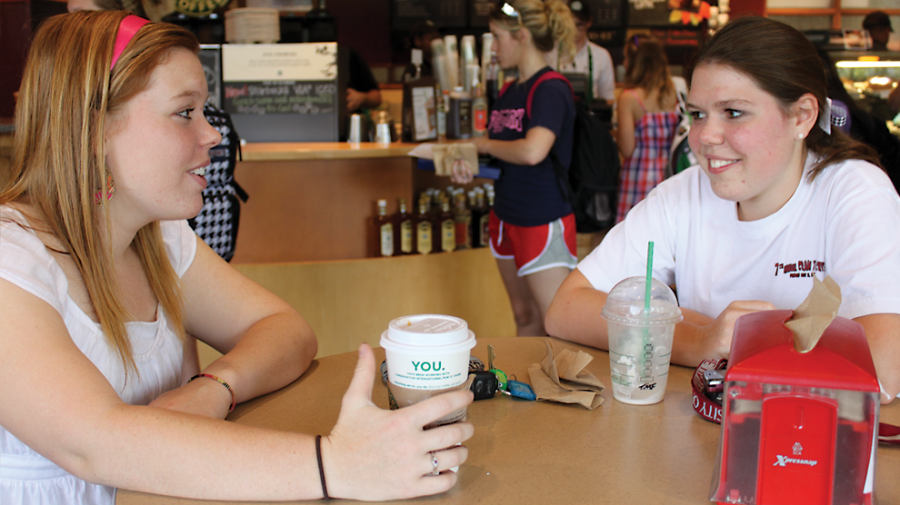The incentives for students to awake to a stress-filled day fraught with classes, studying and perhaps work are few and far between.
Many find themselves thirsting for a well-known catalyst of focus and energy to supply that extra push through a slow morning and drowsy afternoon.
Students can find caffeine-handy coffee vendors in the Ferguson Student Center, Amelia Gayle Gorgas Library and Lloyd Hall with franchises such as Starbucks and Java City stationed on campus.
Sheena Quizon, a dietician and the assistant director of nutrition education and health services in the Department of Health Promotion and Wellness at the Student Health Center, said excessive caffeine intake can generate “some undesirable side effects.”
Quizon said caffeine, when consumed in high quantities, can lead to nausea, restlessness, an inability to fall asleep and even dehydration since the substance is a diuretic.
She said about 250 milligrams of caffeine, or around three cups of coffee, is a moderate amount students can feel safe drinking.
While some students genuinely rely on coffee to facilitate their academic work, others use the drink as a placebo to reinforce a confidence in staying on task, Quizon said.
However, she said she does not see a trend among students to consume excessive quantities of coffee.
“I don’t see people doing abrupt caffeine consumption,” Quizon said.
She said coffee can even be a positive resource since the drink can treat migraines, supply bursts of energy and enable people to stay awake and alert through busy nights.
“As far as saying it’s a legal adderall, [though,] I wouldn’t say that,” Quizon said.
Stephanie McBride, an office associate for the University Medical Center, said caffeine is too accessible on campus and therefore prone to abuse.
“It’s definitely the most widely consumed drug in the world,” McBride said. “And it’s so easy for college students [to acquire].”
McBride said the negative consequences to coffee outweigh its positive utility as a legal stimulant.
“It can cause heart palpitations and can cause you to crash or become tired, sleepy and run-down,” McBride said.
McBride said the University should limit the number of vendors on campus that sell coffee.
“I don’t think it should be as easily distributed [as it is],” McBride said. “Although it may be available around the corner, it’s not the best idea.”
McBride said college students in particular select caffeine as a means to complete academic work.
“The student-age population uses it to cram,” McBride said. “It’s abused the same as adderall [is abused].”
Devin Ray, a freshman majoring in education, said she supports the presence of coffee-vendors on campus.
“I believe students should be able to get a full night’s sleep to be better prepared, but in college, that’s not always feasible,” Ray said. “If there’s a product that can help us get through our day that’s not illegal, then I’m all for it.”







